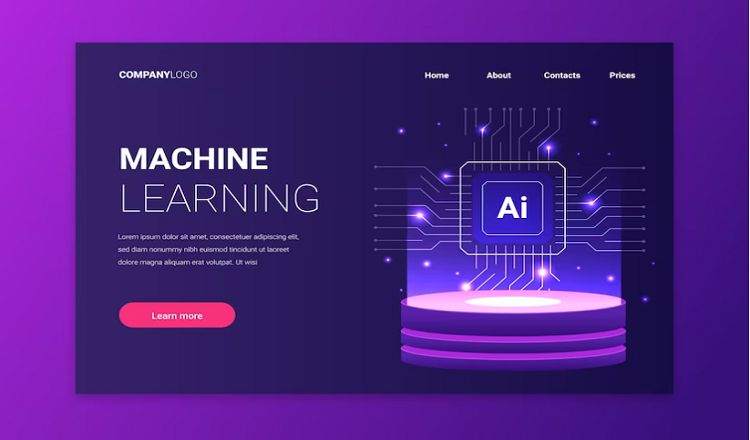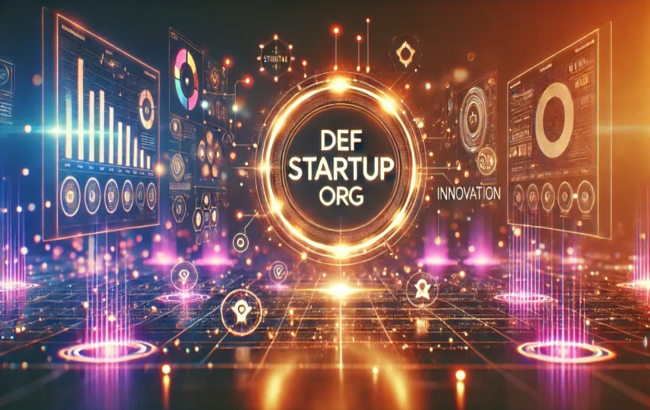It’s no secret that machine learning is altering how humans learn, and AI in education has recently made headlines. However, what precisely is AI in education, and how is it changing the sector? Let’s explore the intersection between education and artificial intelligence to find out!
Let’s define artificial intelligence in education first. AI in education, in its simplest form, refers to the incorporation of artificial intelligence technologies into the learning environment. Personalised learning platforms, sophisticated tutoring programmes, and even automated grading systems can all be used for this. AI in education aims to improve student learning results and the whole learning experience.
What is the situation of AI in education today? It’s reasonable to argue that artificial intelligence is quickly taking over the classroom. From elementary schools to universities, AI-powered solutions are being utilised to customise the educational experiences for students, streamline office procedures, and even evaluate examinations and homework. The best thing, though? Students have reported higher engagement and better learning outcomes, and the findings have been overwhelmingly favourable.
Nevertheless, how precisely is machine learning altering the way we learn? Machine learning algorithms can examine patterns and give students individualised feedback in real-time by utilising large data. This not only speeds up the learning process but also aids in keeping students inspired and on track to accomplish their objectives. The applications of AI in education are essentially limitless because it is a technology that is always growing. So settle back, grab a pen, and get ready to discover the fascinating world of artificial intelligence in education!Personalised Education
One of the most intriguing uses of AI in education is personalised learning. But what is it exactly? Simply put, personalised learning is a teaching strategy that adapts education to each student’s unique requirements and interests. With personalised learning, students can go at their own speed and explore subjects that are important to them rather than adhering to a rigid curriculum.
Personalised education is now a reality, thanks to AI. In-the-moment curricular adjustments can be made based on real-time feedback from AI algorithms that analyse data from a student’s learning experiences. This not only increases the effectiveness of learning but also motivates and engages pupils.
Knewton, DreamBox, and Carnegie Learning are a few examples of AI-powered personalised learning solutions. In order to assist students reach their maximum potential, these platforms use machine learning algorithms to offer them personalised lesson plans and real-time feedback. The future of education is more promising than ever because to personalised learning!Advanced Tutoring Systems
Another intriguing use of AI in education is intelligent tutoring systems. But what are they specifically? Computer programmes that give pupils personalised training and feedback are known as intelligent tutoring systems. Learning is made more effective and efficient by these systems, which use AI algorithms to analyse students’ educational experiences and modify their teaching methods in real-time.
In intelligent teaching systems, AI is essential. To provide individualised feedback and direction, AI algorithms can analyse data on a student’s progress, learning preferences, and hobbies. Students are motivated and engaged as a result, which helps them stay on task.
The use of intelligent tutoring systems powered by AI has various advantages. One benefit is that they can offer each student specialised attention and support, even in big classroom situations. They can also make learning more effective for kids, cutting down on the time and effort needed to fully understand a subject. The finest part is that they can assist pupils in realising their full potential regardless of their upbringing or preferred method of studying. Why not experiment with intelligent tutoring methods right now? Your students will be grateful.Computerised Grading
Another fascinating use of AI in education is automated grading. But what is it exactly? Automated grading can be defined as the process of grading assignments, tests, and other student work using computer algorithms.
How does AI fit into this scenario, then? AI algorithms are capable of analysing student responses and producing timely, accurate, and impartial grading. These algorithms may be trained using vast datasets of accurate responses, and they can give students in-depth feedback on their weaknesses. In addition to saving time and effort for teachers, this enables students to receive more regular and insightful feedback on their work.
The advantages of using automated grading systems with AI are obvious. One benefit is that they can cut down on the time and work needed to grade a lot of student work. Additionally, they can offer grading that is more objective and accurate, lowering the possibility of human error. The best part is that they can support students in receiving more regular and valuable feedback, enabling them to maximise their potential and advance their comprehension of a subject. Therefore, why not try automated grading right now? Your pupils and your grade pile will appreciate it!
Generating Content Using AI
Another fascinating use of AI in education is in the creation of material. But what is it exactly? The use of computer algorithms to create educational content, such as lessons, tests, and other kinds of educational materials, is known as AI-powered content generation.
How does AI fit into this scenario, then? Large collections of educational resources can be analysed by AI algorithms to provide fresh information that is tailored to the requirements and preferences of each student. This helps students receive more interesting and pertinent educational materials while also saving teachers time and effort.
AI-powered content generation systems have a wide range of advantages. For starters, they can give pupils individualised learning materials based on their own requirements and interests. They can also assist teachers in more effectively developing new materials, which will cut down on the time and work needed to prepare lessons. The best part is that they may assist in providing students with more motivating and interesting instructional resources, keeping them interested in their studies. So why not test out content generating driven by AI right now? Your lesson planning and students will both appreciate it!
Testing That Adapts
Another fascinating use of AI in education is adaptive testing. But what is it exactly? Adaptive testing, in its simplest form, refers to the use of computer algorithms to change a test’s difficulty level in response to a student’s performance.
How does AI fit into this scenario, then? Real-time AI analysis of a student’s answers to questions can be used to modify the difficulty of ensuing questions. This enables students have a more customised and effective testing experience, in addition to providing a more accurate assessment of a student’s skills.
The advantages of employing adaptive testing systems powered by AI are obvious. One benefit is that they can offer a more thorough and accurate evaluation of a student’s skills. Additionally, they can support students in having a more tailored testing experience, lowering test anxiety and boosting enthusiasm. The best part is that they can assist teachers in making more informed choices about a student’s development, enabling them to give individualised support and direction. Therefore, why not try adaptive testing right now? Your pupils and assessment system will appreciate it!
Limitations and Challenges of AI in Education
AI in education is not without its difficulties and restrictions, despite its many advantages. Concerns over data privacy and security, ethical questions around the use of AI in education, and the requirement for high-quality training data to guarantee that AI algorithms function as intended are some of the main obstacles facing AI in education.
The use of AI in education is similarly constrained. For instance, context can be difficult for AI algorithms to comprehend, which can result in mistakes and poor judgement. Furthermore, if the training data used to create the algorithms is skewed, AI may be biassed as well.
The potential for AI in education is bright despite these obstacles and constraints. Many of these difficulties will probably be resolved in the upcoming years thanks to technological developments and growing public awareness of the value of data privacy and security. The constraints of AI in education will probably be lessened with continuing investment in AI research and development, enabling AI to play an even bigger role in determining the direction of education in the future.
Conclusion
In conclusion, AI is already having a big impact on education and is expected to have considerably more in the future. AI is transforming how we learn and teach, from personalised learning and intelligent tutoring systems to automated grading and AI-powered content creation. It is enabling teachers to make better informed choices regarding a student’s development while also giving pupils more individualised and effective learning experiences.
The application of AI in education is not without its difficulties and constraints, though, including the requirement for high-quality training data, issues with data security and privacy, and ethical considerations. Despite these difficulties, the prospects for AI in education are positive. Many of these obstacles are likely to be overcome in the upcoming years with sustained investment in research and development and raised awareness of the significance of data privacy and security.
In the end, AI has the ability to completely transform the educational landscape and offer students chances for growth and development that were previously unthinkable. The use of AI in education has a promising future, and we are excited to see what the coming ten years will bring.
Read More You May Like:
- AI and the Future of Work: How Will Automation Impact the Job Market?
- AI and the Future of Transportation The Rise of Self-Driving Cars and Drones
- AI and Cybersecurity: How Machine Learning is Being Used to Fight Cybercrime
- 4 Ways Artificial Intelligence is Changing the Technology Landscape
- The ethics and safety concerns surrounding autonomous vehicles




